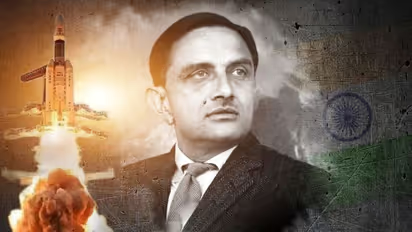Remembering Vikram Sarabhai, the father of Indian space program
Published : Aug 12, 2022, 10:01 AM IST
Vikram Ambalal Sarabhai's monumental contributions enabled India to stand shoulder to shoulder with the world in the space sector. Let's look at some facts you must know about this visionary, great scientist and passionate patriot
Stay updated with the Breaking News Today and Latest News from across India and around the world. Get real-time updates, in-depth analysis, and comprehensive coverage of India News, World News, Indian Defence News, Kerala News, and Karnataka News. From politics to current affairs, follow every major story as it unfolds. Get real-time updates from IMD on major cities weather forecasts, including Rain alerts, Cyclone warnings, and temperature trends. Download the Asianet News Official App from the Android Play Store and iPhone App Store for accurate and timely news updates anytime, anywhere.
Read more Photos on
